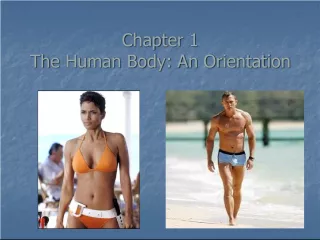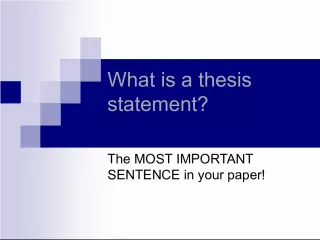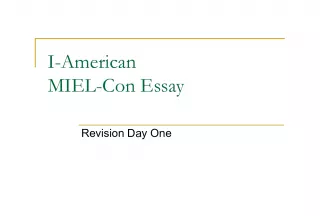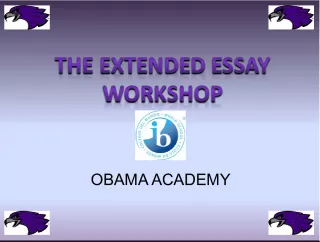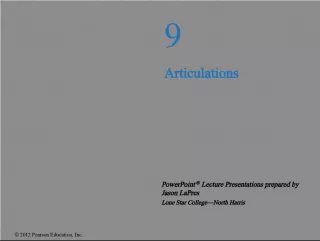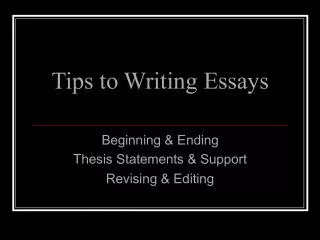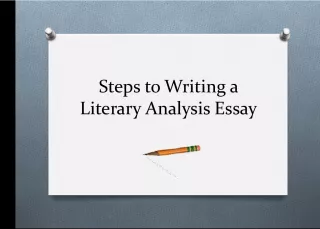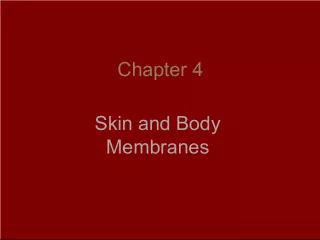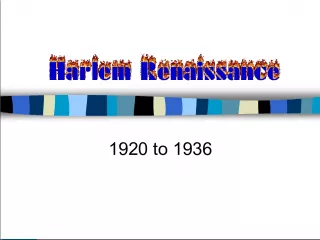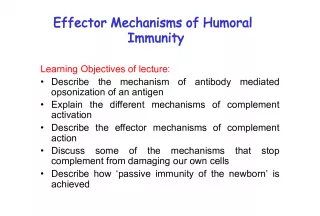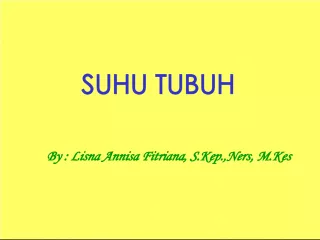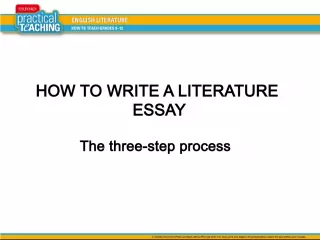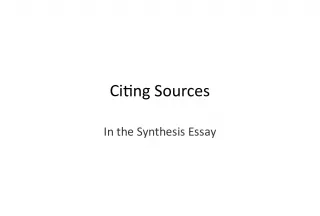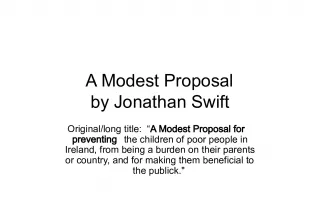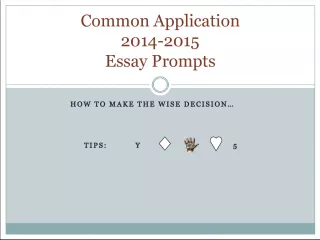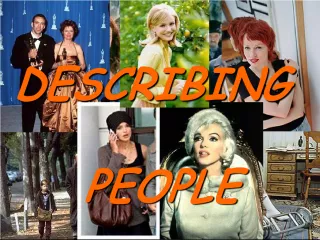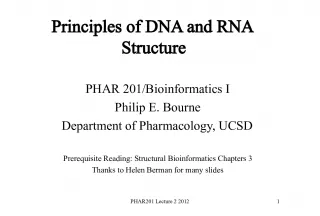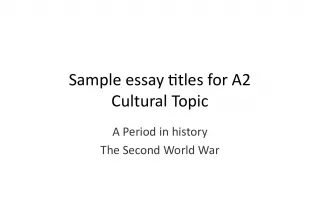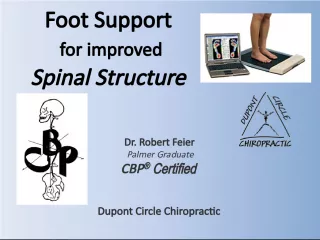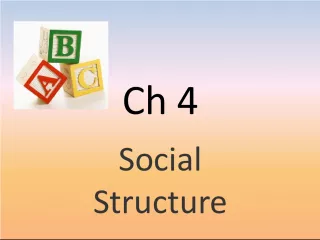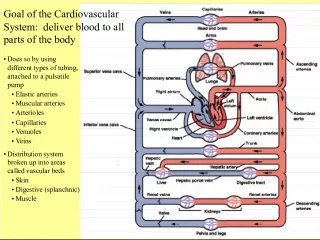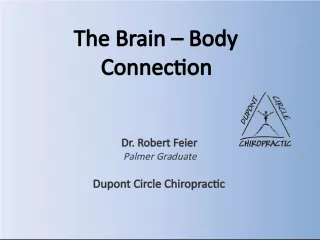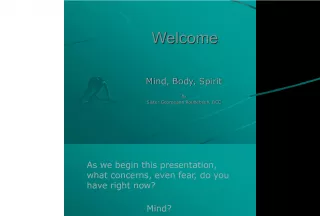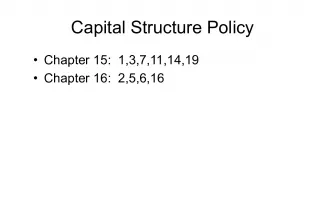The Structure of an Essay: Introduction, Body, and Conclusion
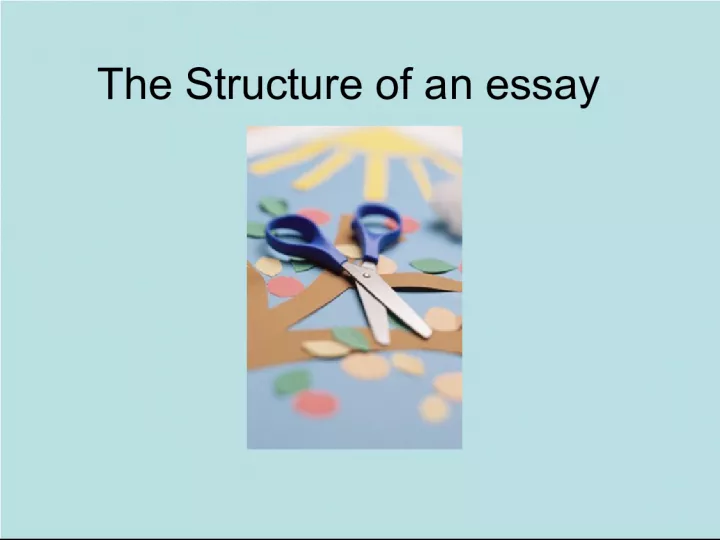

Learn about the three-part structure of an essay, including the importance of the introduction and thesis statement and how to write effective body paragraphs with supporting details.
- Uploaded on | 0 Views
-
 raghav
raghav
About The Structure of an Essay: Introduction, Body, and Conclusion
PowerPoint presentation about 'The Structure of an Essay: Introduction, Body, and Conclusion'. This presentation describes the topic on Learn about the three-part structure of an essay, including the importance of the introduction and thesis statement and how to write effective body paragraphs with supporting details.. The key topics included in this slideshow are essay structure, introduction, thesis, body paragraphs, supporting details,. Download this presentation absolutely free.
Presentation Transcript
1. The Structure of an essay
2. The essay usually contains three parts: Introduction Body Conclusion
3. Introduction The introduction contains 3 parts: Hook Background information Thesis The thesis is the most important part of the essay. It gives the purpose of the essay and the writers point of view or opinion about the topic or issue. A thesis can be direct or indirect.
4. Body Paragraphs Topic sentence - This is the first sentence of the body paragraph that tells the reader what the paragraph will be about. Supporting sentences These sentences give details, examples and explain and discuss the main point of the paragraph. These sentences should support the topic sentence and the thesis of the essay.
5. Conclusion paragraph This doesnt just restate and summarize the essay. This paragraph can - discuss the importance of your ideas - make a prediction - give the reader a new perspective - challenge the reader - propose a solution or suggestion - discuss what people can learn - discuss how this issue affects society/world - leave the reader with a thoughtful question Dont just list the same points from your essay. Dont introduce too many ideas!
6. Example Introduction Is coffee a drug? People everywhere are trying to cut back on their consumption of coffee, a harmful drink that people crave but feel guilty about. Coffee is said to cause nervousness and is purported to be addictive. We have all heard about these harmful effects of coffee, but many Americans continue to drink it daily. What if instead of feeling guilty about drinking coffee, people could feel good about taking this herbal supplement? There are many benefits to coffee such as fighting drowsiness, boosting athletic performance, and enhancing the pain relief of aspirin.
7. Example body paragraph First of all, coffee is best known as the powerful stimulant that helps people stay awake during night driving and cramming before final exams. Its caffeine is capable of boosting energy, increasing alertness, and quickening reaction time. It is also a mood elevator and may help mild depression. The explanation for this may lie in research conducted in the mid 1980s, which suggested that the chlorogenic acids in coffee might have an antidepressant effect on the opiate system in the brain. A cup of coffee could help in performance of tasks requiring sustained attention, even during low alertness situations such as after lunch, at night, or when a person has a cold.
8. Example Conclusion Although most people dont think of it as such, coffee is clearly Americas most popular herbal beverage. Despite the scare tactics of those who would try to discredit coffees reputation, years of research have not shown harmful effects when coffee is taken in moderation. It not only helps a sleepy nation wake up in the morning, but it also has significant therapeutic value, which has been scientifically proven. Not only should people not feel guilty about drinking coffee, they should encourage more drinking of it as well as encourage others to drink it for its many benefits.
9. Essay taken from Blueprints 2: Composition Skills for Academic Writing by Folse, Mahnke, Soloman and Williams 2003, Houghton Mifflin Company
